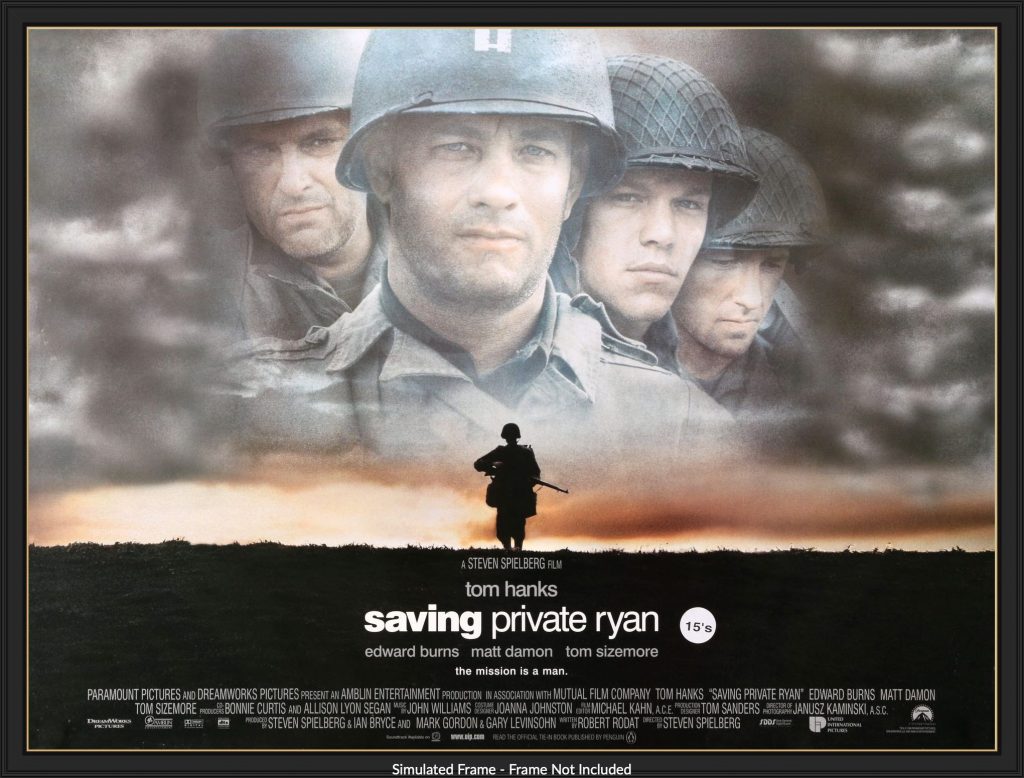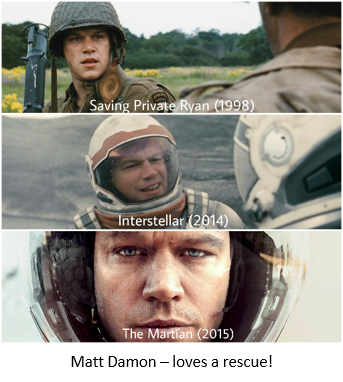Leading in Dissent – more lessons from Captain Hanks
Prefer to watch rather than read? Click here to watch the video, 5 mins, with captions.
(Previous videos here BTW)
Like I did in my article and video on Radical Competence, this week I again break down a scene from a movie starring Tom Hanks. This time it’s Saving Private Ryan, with our mate Tom playing Captain John Miller. To get the full effect, it’s really best to watch the video, the article doesn’t really do it justice.

What you’ll see is an example of handling what we might call justified dissent – Captain John Miller and his soldiers have stormed the beach at Normandy in World War II, and he is given their next mission – select a small group of your people and find a Private Ryan. The mission exists as Private Ryan’s three brothers had all been killed in action, and the US had passed the ‘sole-survivor’ policy which required that in situations such as these, the surviving sibling be brought home. As you might expect, this is not exactly the mission the soldiers signed up for, and not all are happy.
Here’s what Captain John Miller does.
Doesn’t React and Opens it Up
In the scene, Captain Miller is challenged by Private Reiben, a smart and confident solider, to “explain the madness” of a mission of risking the lives of eight soldiers to find one…it just “doesn’t make sense”. With all of the team in earshot, Captain Miller finishes the previous conversation, then asks “anyone want to answer that?”. The answer is given by another solder…”think of the poor b….rd’s mother”, the reason for the mission.
By maintain normal tone and conversation, and not immediately trying to swat down the question, Captain Miller both demonstrates he’s OK with the discussion, and at the same time provides an opportunity for the team itself to handle it. This allows a natural flow to continue.
Sense of Duty
Another soldier, Private Upton, a newcomer who was also obviously more intellectual and less hardened than the others then quotes the classic Tennyson poem The Charge of the Light Brigade:
“theirs not to reason why, theirs but to do or die”
Tennyson
When another soldier asks “we’re all supposed to die, is that it?”, Captain Miller takes the chance to point out that Private Upton was talking about “our duty as soldiers”, where following orders supersedes all. Private Reiben gets in another dig “Even if you think the mission’s FUBAR sir?” (I’ll leave you to look up FUBAR if you don’t already know). Here’s where the gold comes, as Captain Miller replies:
“Especially if you think the mission is FUBAR”.
Especially.

Civilian organisation life does not have as strong a sense of duty as the military. But this doesn’t mean it does not exist. People in organisations are not sending their own invoices, and their manager is not directly paying them. It’s the organisation that pay people. That’s one basis for duty.
Another is the natural need that lives inside of us to be a part of something bigger. Missions being ordered from above in the military theoretically are done due to a wider picture which those making the decisions have. Same in organisations, even if they’re called something different. Being part of something bigger requires being able to put aside personal preferences and carry out the mission.
And finally, many people do still have a sense of duty. The need to do what’s asked of them.
There’s a key thing required for this to occur however, and that’s the ability to express an alternate view. Or to “gripe”. That’s where the next scene comes in.
Gripes Go Up
Private Reiben puts the challenge back onto his Captain, asking him “you don’t gripe at all?” Captain Miller replies, and, critically, does so in exactly the same tone as he was using from the beginning. No arguing, no trying to win, just a conversation. He explains:
“..gripes go up, not down. Always up. You gripe to me, I gripe to my superior officer, so on, so on, so on. I don’t gripe to you. I don’t gripe in front of you”
Notice two things here – the obvious one is that he’s saying that you’re not going to be hearing me complain. The second thing is also critical here – the message is that gripes exist, and they’re OK. In fact, the system is that gripes go up. They’re condoned.
This is crucial for any good plan. Call it feedback, insights, notes, gripes, it’s crucial that people can have a say in what will be expected of them. And at the same time, if the manager is blatantly against the mission (and we’re assuming the mission is ethical), they can’t expect their people to be for it.
This, of course, creates a line that needs to be walked with wisdom. Which is where we come to the masterstroke…
Excellent Mission, Sir
Private Reiben is cunning. Trying a judo move on his Captain, he asks what Miller would say if he was the one who was griping to a superior officer – “let’s say…I was Major…what would you say then”.

Read the wisdom in this response:
“Well in that case, I’d say ‘This is an excellent mission, sir, with an extremely valuable objective, sir, worthy of my best efforts, sir. Moreover, I feel heartfelt sorrow for the mother of Private James Ryan, and I’m wiling to lay down my life, and the lives of my men’…especially you Reiben…’to ease her suffering’”.
(Watch the video to see it properly – the tone matters. This link will take you straight to this part if you’re short on time).
In one stroke, Captain Miller has
- Communicated through the irony that he knows that the mission is not great
- Made it clear that he still intends to carry out the mission and expects his men to do so
- Used humour (‘especially you Reiben’) to maintain connection not just to Private Reiben, but to all the others in the squad, particularly those who already weren’t as fussed.
And it’s that last point that most crucial – the maintaining of connection. That’s why the line must be walked between the needs of the organisation (carry out the mission), and the needs of the team (I know it doesn’t make sense, but I and we are doing anyway).
Bringing it Home
To pull out the key aspects of Captain Miller here, he…
- Didn’t react
- Opened up the discussion
- Brought up a sense of duty
- Legitimised gripes
- Showed understanding of the dissent
- Made his expectations clear
- Above all…maintained connection while supporting the assigned mission.
A fictional character, even one played by Tom Hanks, is a hard act to follow. But that doesn’t mean we can’t all learn something about handling dissent at work.
And perhaps Matt Damon can just stay home.

